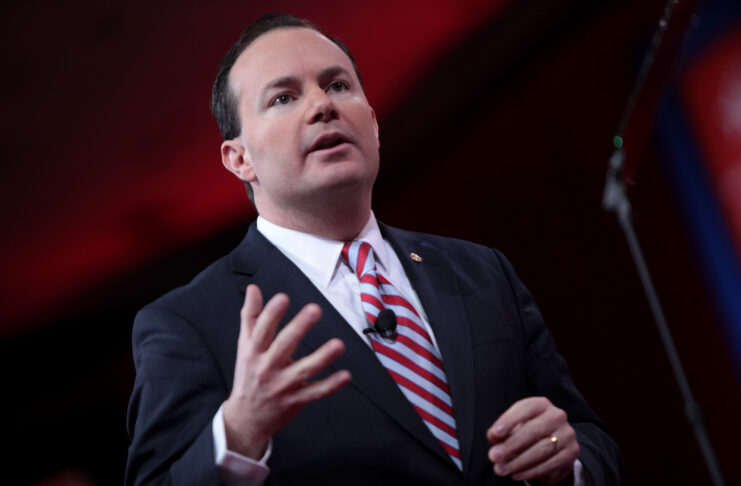Governments thrive on crises. From natural disasters to wars and many, many things in-between, when a crisis or emergency is at hand, the state leaps into action. And often along with that action comes a sweeping array of special powers that allow officials to circumnavigate many of the usual strictures on their power.
Naturally, some officials are loathe to surrender such powers once they are in place. And that's particularly true at the federal level, where there are currently 41 national emergency declarations in effect.
The oldest of those dates back to the Carter administration. It's been renewed continually since 1979.
There may be sound policy reasons to keep these declarations — and the power they confer — in place for some time. But not endlessly, and most certainly not without congressional oversight.
Enter a bipartisan Senate bill from Sen. Mike Lee that would automatically end presidentially-decreed emergencies after 30 days. Congress could vote to extend the emergency. And if Congress agrees to do so, it would allow an extension only after a period of debate and discussion over whether there is still an emergency requiring special presidential authority.
And if not, then Congress would sound the “all clear.”
That may seem like Congress intruding on presidential authority. But as a 2021 Congressional Research Service report makes clear, Congress has routinely put limits on presidential emergency declarations. For example:
Until the crisis of World War I, Presidents utilized emergency powers at their own discretion. Proclamations announced the exercise of exigency authority. During World War I and thereafter, Chief Executives had available to them a growing body of standby emergency authority that became operative upon the issuance of a proclamation declaring a condition of national emergency. Sometimes such proclamations confined the matter of crisis to a specific policy sphere, and sometimes they placed no limitation whatsoever on the pronouncement. These activations of standby emergency authority remained acceptable practice until the era of the Vietnam War. In 1976, Congress curtailed this practice with the passage of the National Emergencies Act.
And as the CRS notes, the Act “has not been revisited by congressional overseers” since it was adopted in 1976.
Which means the law governing emergency declarations is long overdue for a refresher. But if a refresher isn't enough, then the Lee bill offers a more substantial degree of oversight and accountability to the emergency declaration process. Congress has long been too eager to delegate power to the executive branch and bureaucracy. It's time for the worthies to step up, exercise their oversight authority and act like the co-equal branch of government they are supposed to be.
The opinions expressed in this article are those of the author and do not necessarily reflect the positions of American Liberty News.
READ NEXT: Report: OceanGate Titanic Sub Passengers ‘Have Been Lost'



Blame the RNC DNC Estd for this day 1
Typical example of politicians guaranteeing they have a life-long career.
Hmmm, better vote themselves another raise. Gotta’ keep ahead of the inflation that they created, ya’ know.
I agree with Senator Mike Lee. End the emergencies for heaven’s sake.